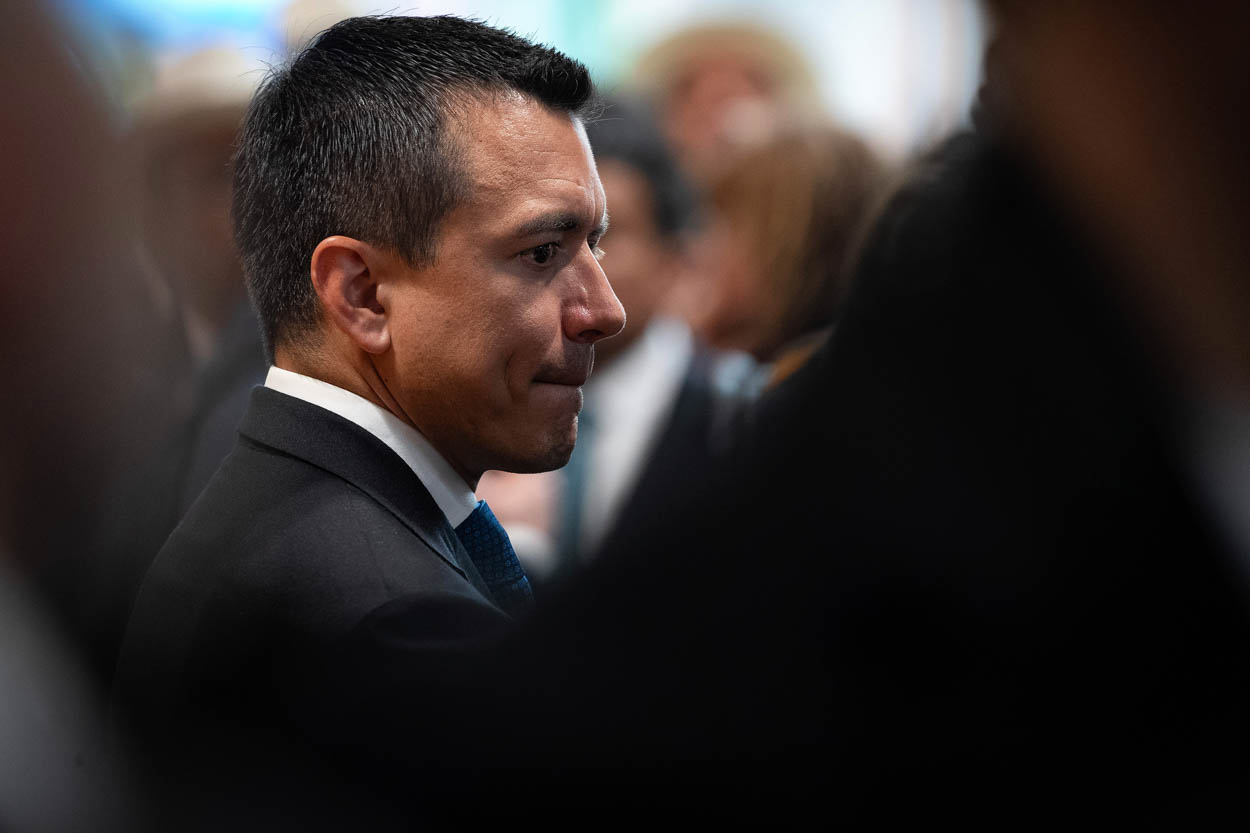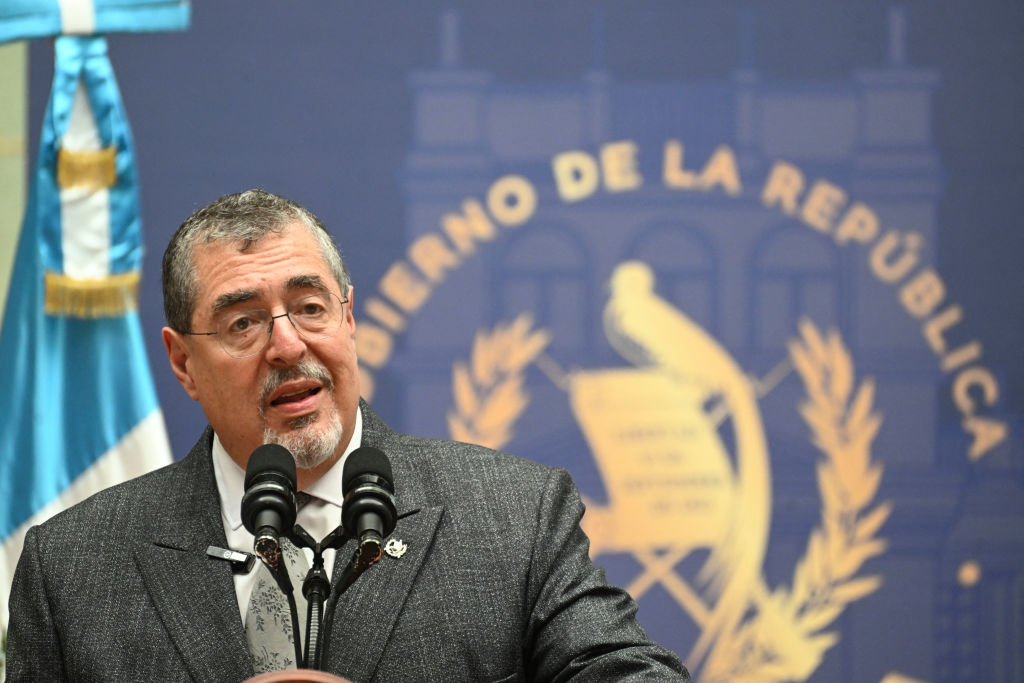Pérez Molina Takes the Helm in Guatemala
Pérez Molina Takes the Helm in Guatemala
During his January 14 inauguration, Otto Pérez Molina pledged to fight criminality in Guatemala and asked for regional cooperation, particularly from Washington.
For the first time since Guatemala’s return to democracy, an ex-general took the presidential helm on January 14. “Change has arrived,” said new President Otto Pérez Molina during his inauguration. He also acknowledged that he enters office at a time when the country faces “many problems and enormous challenges.” Pérez Molina of the Patriotic Party won a November runoff election with the promise of a mano dura—or iron fist—to fight criminality and rein in the country’s high murder rate. His inaugural speech urged Mexico, Central America, Colombia, and particularly the United States to step up cooperation in the fight against organized crime. Guatemala’s high poverty rate and economic concerns will be crucial issues for the administration as well. But, with over two-thirds of Guatemalans viewing violence as the country’s top problem, combating crime will be at the top of Pérez Molina’s agenda. How will he balance these challenges with his military past?
One way Pérez Molina hopes to improve security is through a resumption of military aid from Washington. Overt aid was initially cut off by U.S. President Jimmy Carter in 1977 due to human rights concerns, although Guatemala received military support intermittently since then, including in the form of weapons purchases and training for emergency response. Prior to Saturday’s inauguration, incoming Guatemalan Foreign Minister Harold Caballeros told the Associated Press: “I do believe Otto Pérez Molina will pursue the lifting of the military ban” and seek U.S. aid to help fend off the Mexican drug gangs operating in portions of the country. Some observers worry that the new administration’s hopes to resume such aid augur trouble, given Pérez Molina’s military past during a brutal 36-year war between government forces and rebel groups that claimed some 200,000 lives. He has faced ongoing accusations from human rights groups who say he played a role in abuses during that period. He has not been charged and instead emphasizes his leadership in negotiating the country’s 1996 peace treaty.
Prior Guatemalan presidents also sought resumption of U.S. aid, as InSight Crime points out. During his final weeks in office, Pérez Molina’s predecessor Álvaro Colom traveled to Washington, after which he said a series of conditions had been hammered out for reestablishment of aid come 2013. Some may be a challenge for the new government to meet; one requires the release of all civil war-era military documents. Another involves continued cooperation with the International Commission against Impunity in Guatemala (CICIG). The UN body, which began operating in 2007, seeks to bolster Guatemalan rule of law and bring criminals to justice. CICIG’s activities have thus far led to convictions in high-profile cases along with arrests of corrupt police officials and dismissals of over 2,000 corrupt police officers. An Americas Quarterly web exclusive explores the crucial role played by Guatemalan Attorney General Claudia Paz y Paz in conjunction with CICIG to confront impunity through restructuring of the Public Ministry, arrests demonstrating ministerial independence, and some efforts to take on war criminals. Pérez Molina has indicated Paz y Paz will continue in her role and he will support the CICIG’s efforts, though some observers caution he could backpedal while in office.
Even as Guatemala looks for increased U.S. support in dialing down organized crime, the new government may find itself riding a positive trend. As Central American Politics blog reported earlier this month, the country’s homicide rate appears to be decreasing in what the blog posits could be the “underreported story of the year in Guatemala.” The National Civilian Police and the National Institute of Forensic Sciences show a decline of 6 percent and 7.4 percent, respectively, when compared to 2010 figures, and 14 percent when compared to highs in 2009. The blog also reports that the 2011 murder rate of 38.61 per 100,000 inhabitants falls well below that of neighboring El Salvador (70) and Honduras (86). Still, the presence of Mexican gangs and organized crime looms as a security concern. “An impoverished, underemployed population is a ready source of recruits,” according to an October 2011 International Crisis Group report that calls for the new Guatemalan government to address social issues that spur violence. The report also urges international involvement, saying: “Decisive support from the international community is needed to assure these challenges do not overwhelm a democracy still recovering from decades of political violence and military rule.”
Learn more:
- Access Pérez Molina’s inaugural speech.
- Read an AS/COA hemispheric update: “Guatemala Election Update: The Road ahead for Pérez Molina.”
- InSight Crime’s Guatemala page offers news and background on security issues.
- An Americas Quarterly blog post lists new cabinet members and raises questions about the lack of indigenous representation in the new government.
- Prensa Libre offers an online photo gallery of past Guatemalan inaugurations.







